
Transcription
Timothy J. Muise
STEERING COMMITTEE COORDINATOR
CURE-ARM, INC.
P.O. BOX 396
BILLERICA, MA
01821
JUNE 1, 2015
Dear Readers:
What follows is CURE-ARM's defintive "Position Paper" on the true failure of the American criminal justice system as so tragically evidenced here in the commonwealth of Massachusetts.
To find out more and get involved in the cause to expose this tragic system please contact me directly at:
Timothy J. MUISE, W66927
MCI SHIRLEY
PO BOX 1218
SHIRLEY, MA
01464-1218
'free speech is the answer'
THE CRIMINAL AMERICAN
CRIMINAL JUSTICE SYSTEM
A CURE-ARM, INC.
"Position Paper"
*******
Its modern variety began in 1972 with the passage in Massachusetts of the penal reform law hard upon the heels of the Attica prison massacre = the indiscriminate slaughter of convicts and guards to "solve" a reform protest.
Massachusetts called upon its religious, intellectual, and political heritage to inform its legislative intent -- namely, the 1648 Pilgrim's first codification of law in America ("The General Laws and Liberties Concerning the Inhabitants of Massachusetts"), admonishing that learning is the saving grace against "that old deluder, Satan" -- the same period Harvard College established secular dedication to learning -- and the John Adam's drafting in 1780 of the Massachusetts Constitution's Chapter V to "cherish" the bequest of learning from the religious and intellectual inheritance as the saving political grace of a true and creative democracy. As the Laws and Liberties would out the betrayal of such trust of learning's "light and law of nature": "nations (would be) corrupting his ordinance (both of Religion and Justice)," wherefore as consequence "God withdrew his preference from them proportionately whereby they were given up to abominable lusts."
That corruption is exactly what happened when Massachusetts betrayed faithful implementation of its penal reform law, which we are here introducing, will narratively review, and then summarize.
The Narrative Review
Though statutorily entitling prisoners to rehabilitation ("shall rehabilitate" -- Mass. gen. Law, Chapter 124, section 1) within the Mass. general law framework of entitlements of professional treatment (MGL c. 112, ss. 163 -- "Practice of rehabilitation counseling... maximizing... social functioning"), the Executive branch, through the Dept. of Correction (DOC) agency, withheld such treatment of licensed social work practitioners. The trick of the Executive and Legislative was how to play out the shell game these past 43 years.
They did so right at the start when the Legislature barred for prisoners application of section 11 of the Administrative Procedures Act (MGL c. 30A) -- the Act a necessary regulatory guide to implement a statute. If section 11 had not been voided for prisoners, it would have provided for an appeal of an adverse administrative agency decision (say a denial of a prisoner's transfer to lower custody) to a quasi-judicial proceeding in which the aggrieved would be assisted by an attorney, who could offer evidence of expert testimony (read, of a licensed rehabilitation counselor), and the judge would necessarily require the agency to offer opposing evidence of expert testimony (read, or unlicensed agency employee).
Not satisfied with the void barrier of an excised section 11, the Legislature in 1977 inserted a modification in the middle of the social work laws themselves og c. 112 to "exempt" (section 131) the DOC from employment of licensed professionals.
And just to be sure there was no mistaking intent to exclude licensed social work, in 1994 the Legislature passed a law to oust the Dept. of Mental...
(1)
CRIMINAL AMERICAN... CURE-ARM, INC.
Page 2.
...Health from treating sexual offenders (civilly committed or otherwise) at the prison Treatment Center, and empowered the DOC to challenge a federal court consent decree going back to 1974 that entitled such inmates to licensed care. The case is King v. Greenblatt, 149 F. 3d 9 (1988), the court reluctantly agreeing, provisionally, to vacate that decree, allowing the DOC its "experiment" of providing care, but reminding that when it comes to a contestation of accredited treatment modalities, the judiciary has the final word as arbiter on professional judgment.
The constitutional perniciousness of this governmental duplicity and deprivation did not stop there. For prisoners, their family, friends, and supporters, protested through court action (as they are obligated as citizens to do) that the operative DOC administrative program regulations were on their face or in practice in noncompliance with the statutory rehab mandate, and from 1974 through 2010 they so engaged and prevailed in state and federal court, all the while suffering a failed and suppressed good faith application of corrective programming, including the regular punishment of prisoners who would expose the corruption.
These landmark cases against the DOC were: Blaney, 374 Mass. 337 (1978) (right to programming though isolated in Protective Custody); Hoffer, SJC Suffolk County No. 85-71 (1993) (right to programming though in administrative segregation, with an uncontested judgment that, ((Liberty Interest)) right to rehab treatment programming now existed); Haverty, 437 Mass. 737 (2002) (programming right reaffirmed no matter what label the DOC puts on placements); Tyree/Peterson (Federal Court 2010 WL 145892, l (D. Mass.) (affirmation that Haverty following its precursors conclusively establishes that the deprivatory violations were both a State and Federal constitutional violation).
These four-decade conclusions of law by the judicial branch of government in and of itself established the unconstitutional conduct of legislative and executive branches, and a crisis of governance and "professional judgment" under separation of powers doctrine.
If there is any doubt about the depth and reach of it, the as-far-back-as-1985 admonition by three justices of the Supreme Court in Superintendent v. Hill, 472 U.S. 445, dispels it: the DOC "somewhat inexplicably" did not "know the State's laws" on prisoners' procedural rights, though an "opaque footnote...confirms he was aware" -- which signaled "warning" to "the Court itself" of hazard "to the maintenance of standards that should govern procedures in this Court." Following 1985 was indeed the warning made real in Hoffer (1993), King (1998), Haverty (2002), and Tyree/Peterson (2010) -- namely, the repetitive contempt of the Executive and Legislative of the constitutional rights and of the power of the Judicial to require compliance with its judgments.
Summary
The jurisprudential disregard and defiance goes equally to the sanctity...
(2)
CRIMINAL AMERICAN... CURE-ARM, INC.
Page 2.
...of the methodologies of science -- here the social science professional judgments of rehab counseling. The Pilgrims were right: the sacred applies to learning as "the light and law of nature" that licensed rehab counselors seek, in strict protocols of recognized practice under peer review. When the Executive and Legislative truncated the laws of social work, they most certainly "corrupted His Ordinances (both of Religion and Justice)"; they decapitated the mind of social reason in its search for its truth, and were indeed "given up to abominable lusts" of the notorious failures of the criminal justice system.
And if there's any doubt about the national corruption of social science truth and reason, it was disabused with the "Remarks" addressed by the Massachusetts Governor in 1992 to the assembled attorneys general of the States of the Union in Washington, D.C. The chief law enforcement officers of the country sat in silent approval as the governor said flatly that social work protocols were definitely excised from Massachusetts "corrections" and in their place was to be the programming of a "trip through hell." Thereby that "old deluder, Satan" was officially ensconced as the criminal justice new learner, and all the country's institutions and public-spirited societies bowed in obeisance -- the politicians, the press, the churches, the colleges -- in a collective carceral orgy of prison construction, extended mandatory sentences, juveniles legislated as adults, supermax segregations, a sub-population of felony-record disenfranchised -- a Frankenstein social science complementing the new "free society" normal of gated communities, body-searches, and terror alerts.
Jean-Paul Sartre had it right 60 years ago: America lacks a "valid theory" in social science ("sociology") to guide and empower it. Hence the debility of licensed practitioners themselves to have asserted their rightful place in the jurisprudential constitution of applied learning. Which is another way of saying that the American schools of learning mime the corrupted faculty of the government's mind and conduct of American criminal justice. Their vaunted scholastic "excellence" services a perverted social science application, hence in abysmal ignorance of Sartrean philosophical anthropology and Simone de Beauvoir's feminist critique, upon which this position is founded. And that conclusion is prima facie.
CURE-ARM, INC.
2015
Thanks to:
Timothy J. Muise
George Nassar
Shawn Fisher
(3)
Other posts by this author
|
2017 jun 24

|
2017 jun 24
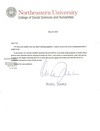
|
2017 jun 24
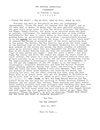
|
2017 jun 24
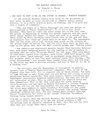
|
2017 jun 18
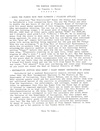
|
2017 jun 15
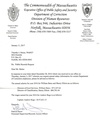
|
More... |
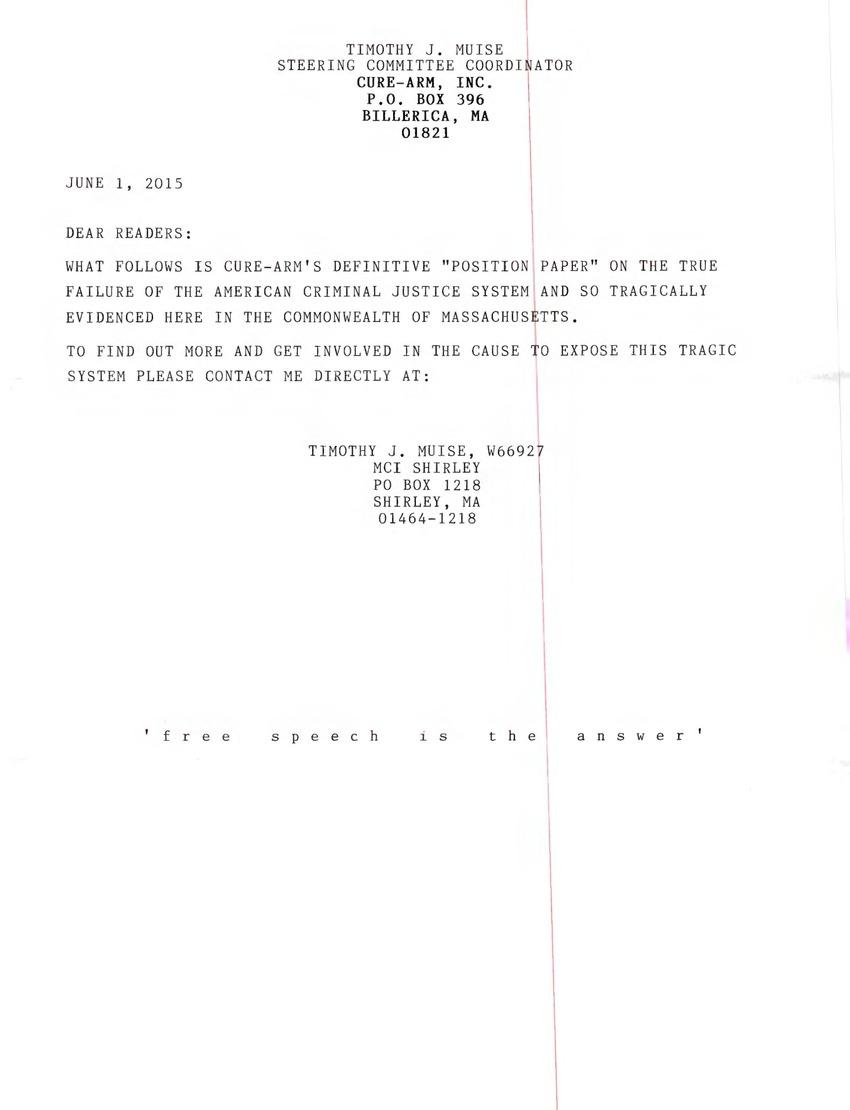
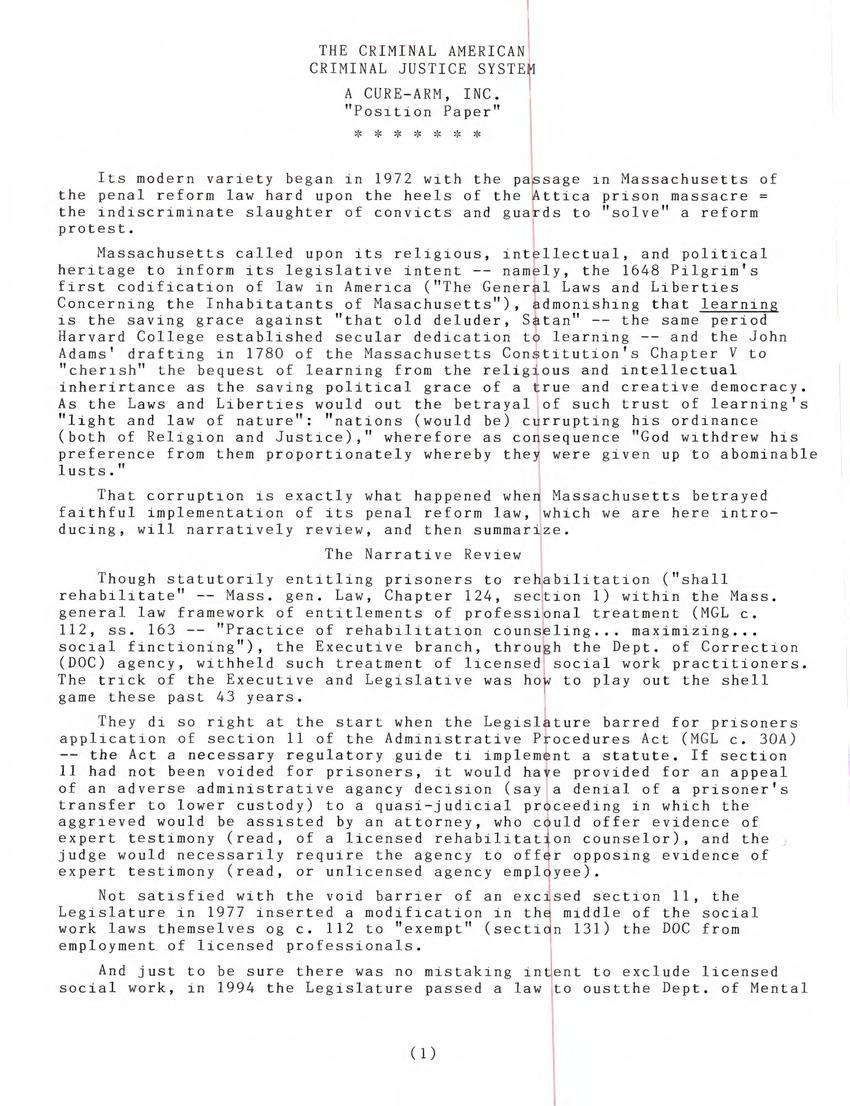
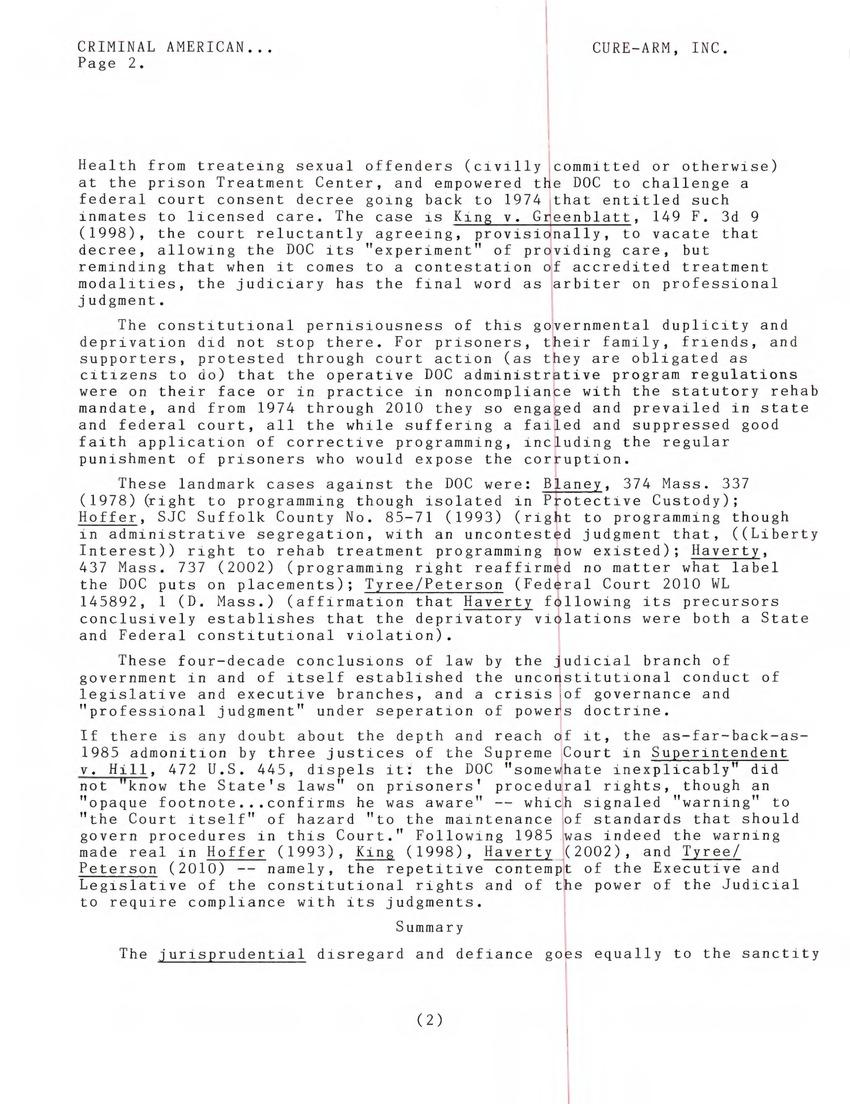
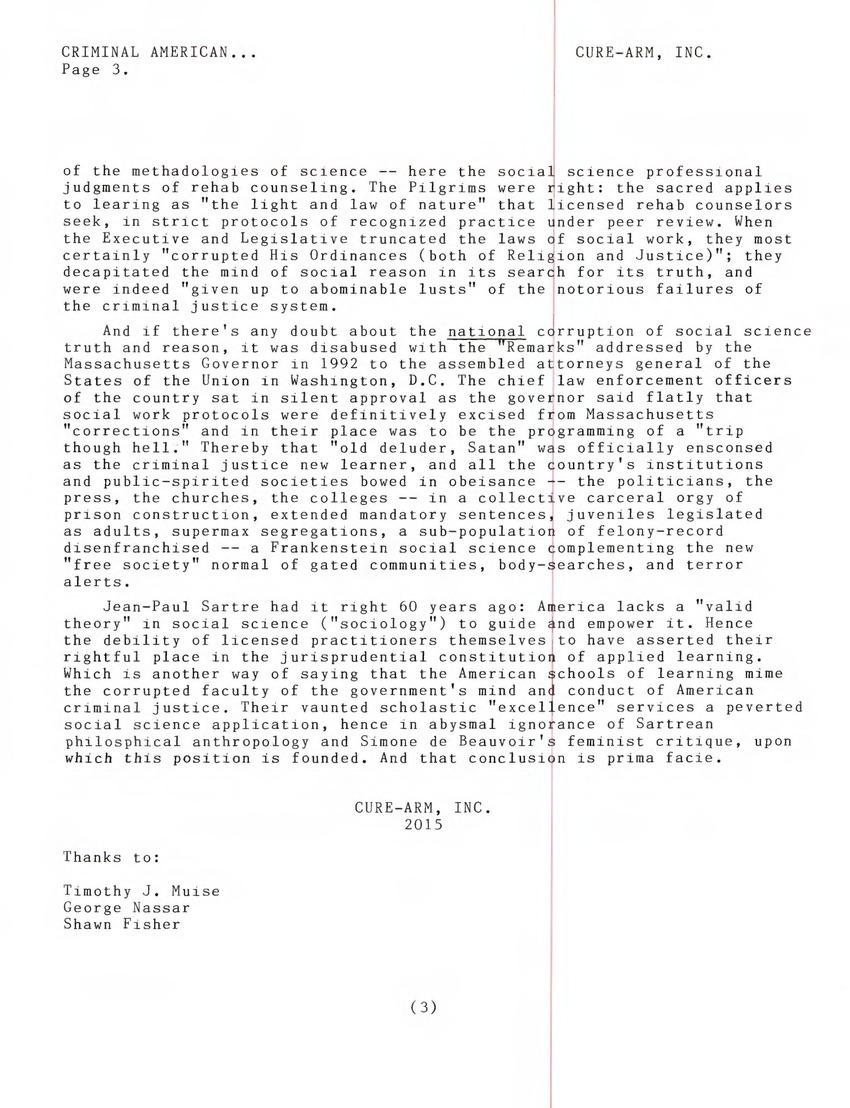

Replies